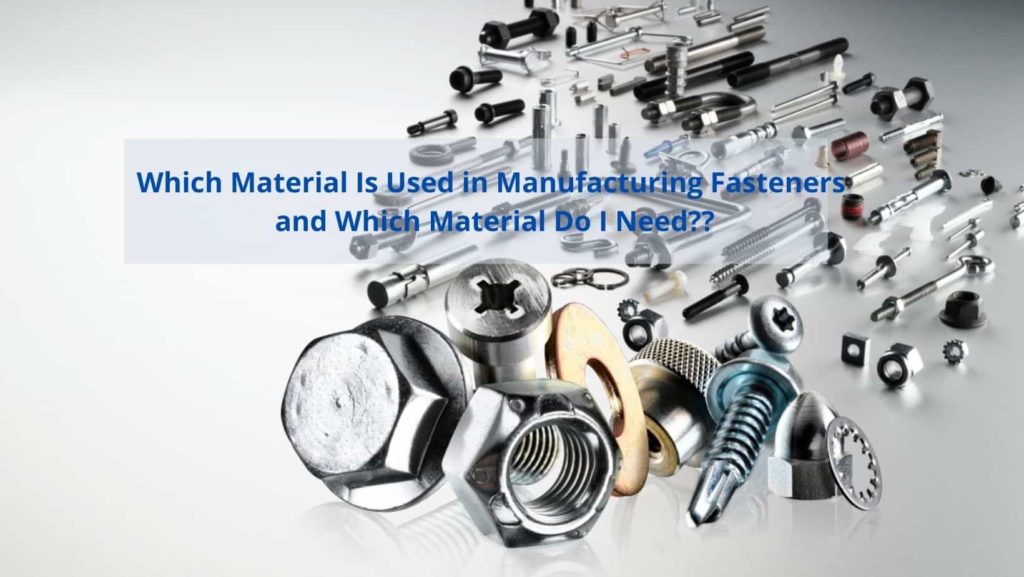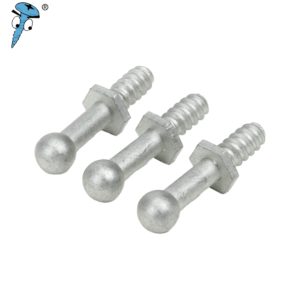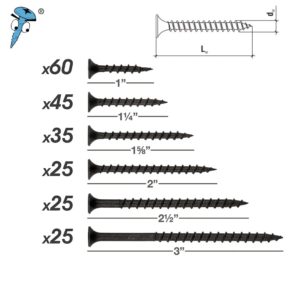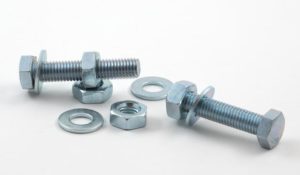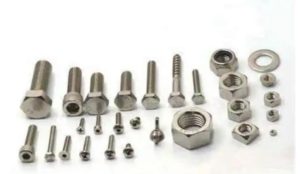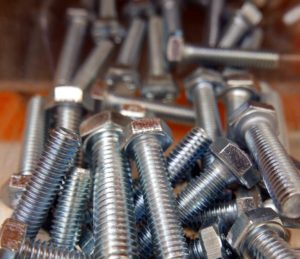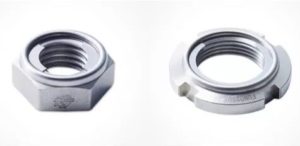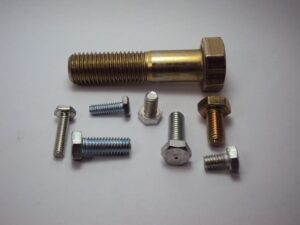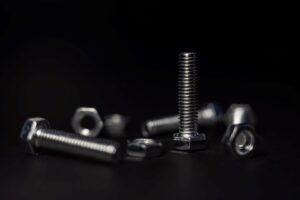Selection of material for screw fasteners (as applicable)
Fasteners come in many sizes, but whether you want to use bolts, screws, rivets, pins, clips, or certain self-locking parts, choosing the right material is an important issue. For example, choosing a fastener made of steel rather than aluminum will greatly affect the quality and life of the connection. Many factors, such as environmental conditions, the presence of corrosive elements, physical stress requirements, and overall structural stability, can affect the effectiveness of the material.
Everyone talks about the performance of fasteners, but no one cares about the materials used in fastener manufacturing. Fastener materials depend on their merit, performance and use. Whether it is the construction industry or other major industries, nuts, bolts, and other fasteners are dangerous. Therefore, they determine the overall strength and structure.
There are many kinds of materials available for custom fasteners, but the key is to choose the right material for your particular purpose. Whether you want to use fasteners in extreme environments like military defense or for aesthetic reasons, here are a few of the most common fastener materials and the most common applications.
Most custom fastener materials are customized by application.
Steel Fasteners
Steel is the most used in fastener production, accounting for 90% of all fasteners produced each year. Its popularity is due to its high malleability, and its tensile strength and durability. Steel is also relatively inexpensive to produce compared to other metal raw materials. It is often galvanized or chromium plated, but is formed without any surface treatment.
Steel comes in a variety of strengths and shapes, but four are typically used to make custom fasteners.
Soft steels: are used for a variety of applications, including mechanical, automotive, and medical, but they are less strong than steel.
Medium carbon steels are widely used for automotive parts and industrial fasteners with a medium strength rating.
Alloy materials are often used in socket products or critical joints because of their high strength.
Titanium fasteners are the material of choice for manufacturing fasteners with high strength and first-class corrosion and wear resistance. Although it can be used in a variety of applications, it is most often found in high-impact and wear situations, such as the aerospace industry. Brass fasteners Brass is the most commonly used copper-based alloy and is less costly to purchase and produce. It has low strength, but provides relatively good corrosion resistance. It is commonly used in offshore applications or purely for decoration.
Aluminum Fasteners Aluminum is the most economical material for making fasteners and is versatile. In its purer form, it is best suited for lightweight applications because of its low strength and good corrosion resistance. However, when alloyed with other metals, this material is likely to be similar in weight to mild steel. While there are several materials that can be customized, if you think which material is best for your fastener, that would be a good place to start.
Stainless steel fastener
Stainless steel also has many uses, depending on the steel quality.
Stainless steel grade 300 is moderately strong and has excellent corrosion resistance, making it suitable for a variety of applications. While
400 stainless steel has moderate to high strength and good corrosion resistance, it is most suitable for applications such as thread cutting or molding.
Stainless steel sheet is an alloy that features a certain percentage of chromium and nickel with low carbon properties. Its chromium composition gives stainless steel a high corrosion resistance that does not decrease due to deformation and long-term use.
However, the carbon content does not harden effectively, making the metal stronger than most grade 2 steels, but weaker than hardened grade 5 and 8 varieties. Most stainless steel grades have a final strength range of 70 to 220ksi, depending on the metal content in the alloy. The magnetic properties of stainless steel sheets are also lower than those of ordinary steel sheets.
There are two main types of stainless steel fastener materials: Martensitic stainless steel: The martensitic series consists of strong and durable stainless steels that have been heat treated. They are more magnetic than other types of steel, but also less resistant to corrosion.
Organized stainless steel: Most stainless steel fasteners are made of metals from the austenitic series. Their high chromium and nickel content makes them resistant to corrosion and can withstand greater physical strain, but they cost more than martensite.
Bronze and copper fasteners.
Bronze, used to make fasteners, is an alloy, dominated by tin and copper. Because of its resistance to corrosion, bronze is well suited for above-water projects, such as shipbuilding and underwater construction.
Bronze has a slight red color, but is relatively expensive compared to other fasteners. Copper-zinc alloy has good corrosion resistance and electrical conductivity, but has low tensile strength and is a relatively soft metal. As a manufacturing material, part of brass’s appeal is its golden color.
Nylon fasteners.
In special fasteners, nylon is a lightweight synthetic plastic material. It is extremely corrosion resistant, electrically and thermally insulating, easy to dye, and can be easily dyed for aesthetic purposes, such as when replacing fasteners. However, nylon undergoes severe degradation at high temperatures and weakens at low temperatures. In addition, its relatively low tensile strength makes it ineffective for applications with high physical stress requirements.
What do screws do?
There are two different manufacturing methods to make screws. Most screws are manufactured by the thread rolling method. Machining small screws does not allow the production of special or small screws with rolled threads.
The first step in manufacturing screws is cold heading using the wire rolling method. The wire is sent to a machine for straightening and then it is cut to a certain length. Next, the machine cuts the head into the desired shape.
Three techniques can be used for blank screws for threading.
Reciprocating dies: There are two types of flat dies, one that is stationary and another that moves back and forth. The screw is rotated between the two dies.
Centerless cylinder die: The screw is rolled between two or three circular dies to form the thread.
Planet turning die: When the screw is not moving, several die cutters make it turn. The process of making two kinds of screws, the thread rolling machine is more effective. The screws are more durable, better quality and avoid metal softening. The same exact placement of the thread, so all screws are the same.
What about the coating?
Screws are often coated with a coating that completes them by giving them the desired quality. A large number of screw coatings become possible when looking for fasteners that are suitable for a specific environment. As an example, screws can be covered with copper, ceramic, zinc and other materials which provide additional strength, extra protection against corrosion and even loss of aesthetics. As an example, galvanized steel screws offer much better corrosion protection. Similarly, copper-plated screws seem to be more attractive in conspicuous places than steel nails.
The common manufacturing methods are cold heading and machining, the two standard methods of manufacturing screws and fasteners. The cold heading and forging method, also known as cold forging, uses dies, high-speed punches and hammers (rather than heat) to shape the metal wire. When a hollow head screw is cold headed, it goes into a machine that cuts the thread into a spiral.
This can be done by rolling two slotted dies into the blank screw or by rolling the thread on the shaft with a die-cutting machine. An automated process that uses sharp-edged cutting tools to machine chips on the spiral blank until the desired shape and specification is obtained. Precise CNC machining is best suited for small screws or unique custom designs.
Which screw should I use? Here are some things to consider.
The solution has been determined and you have a general plan of action in place, but what about the material? Fasteners may be at the top of your list of priorities, but which one is better?
Determine what materials you want to screw in first. Make different types of screws to hold different materials in place. For example, the strongest wood screws are used to join two pieces of wood.
Find the material and measure the thickness. You need a screw long enough to go through the material, at least halfway through the second one, to ensure a firm grip. Using different materials – from titanium to plastic, steel, fasteners can also be further reduced: depending on the grade to be made. Describe a special alloy mixture or a hardening process that can help you make an informed decision when choosing the right alloy fastener.
This product offers a range of coatings or plating to improve the corrosion resistance of components, and different fasteners have different aesthetics. Strength brittleness corrosion resistance galvanic coupling corrosion characteristics cost.
If you change a fastener, it is best to match the part you want to replace. In some equipment designs, when the more expensive or critical parts are broken, their screws will fail, which is why you can’t simply replace the bolt. That’s because it breaks easily, so there’s a good chance of failure. You must also consider the project environment. For example, salt water can cause galvanic corrosion, which means your fasteners are not as cost effective as you originally thought and expected.
How did you decide on the bolt grade and material In steel fasteners?
Look for the manufacturer and head markings and logos. This will tell you the grade of bolt you are using, some of which are most often three radials, six radials, or even no markings at all.
How to use screws and fasteners?
Regardless of which fastener you use, the first step is usually to drill a slightly smaller threaded hole in the material, slightly smaller than the fastener you intend to use. Whether it’s a nut or a bolt, drilling a hole before installing the fastener will give you a tighter joint.
When using a threaded fastener such as a screw, you need to make sure that you only drill the hole into the surface portion of the product so that its threads can be seated properly. Once you have drilled out of an open hole, you can go ahead and use the drill bit to secure the screw to the material, or you can remove the drill bit and use a hand screwdriver to complete the joint.
When using nuts and bolts, you need to drill the material cleanly so that the bolt can go right through the material and then attach it to the nut on the other end. When you choose bolts for your application, it’s important to predict how deep you will fasten the material, because you don’t want to connect too short or too long with these bolts.
Look for high-quality fastener manufacturer
Now that you have a thorough understanding of screws, it’s time to find the perfect fastener manufacturer for your next projects. Are you ready to get the information for your next projects?
Look up the Prince Fastener options. We are proud of our ability to offer a wide range of screws in different materials and different types. These screws have specific specifications and come in a variety of coatings.
We have a solution for when you are looking for something special for a particular job at hand. If we don’t have the screw you need, we can help you find it.
On top of our wide selection, when you choose Prince Fastener, you can find competitive pricing, fast shipping and great customer service. Our company is committed to ensuring that you get what you want as soon as possible.
